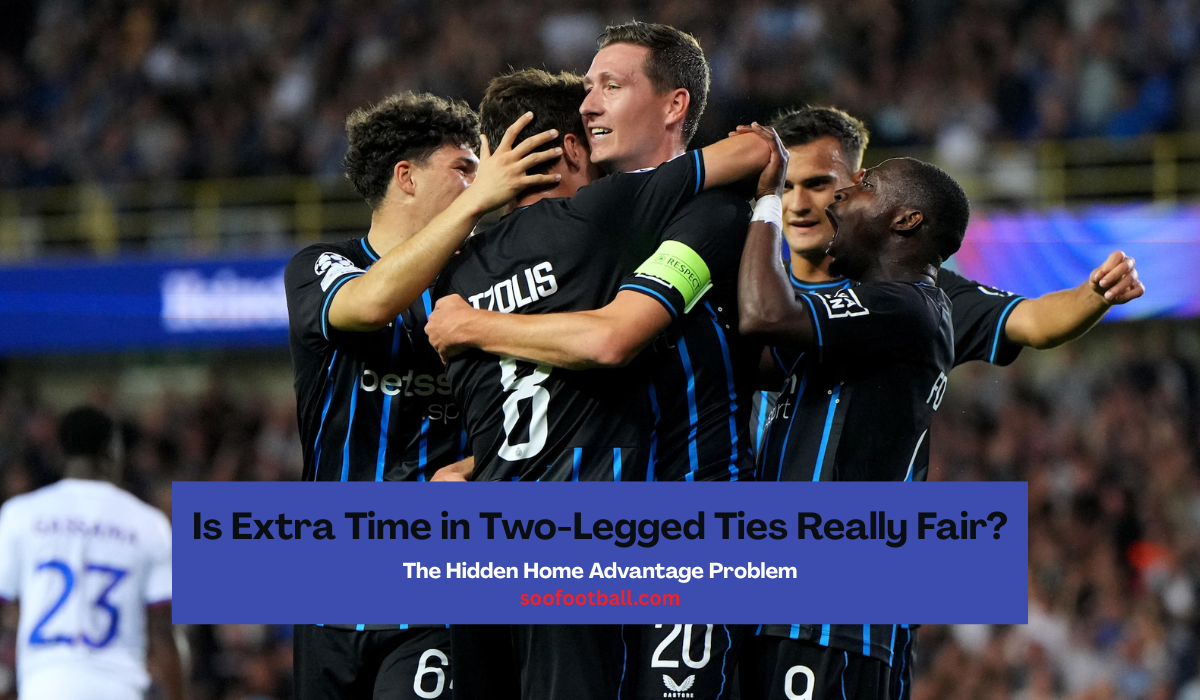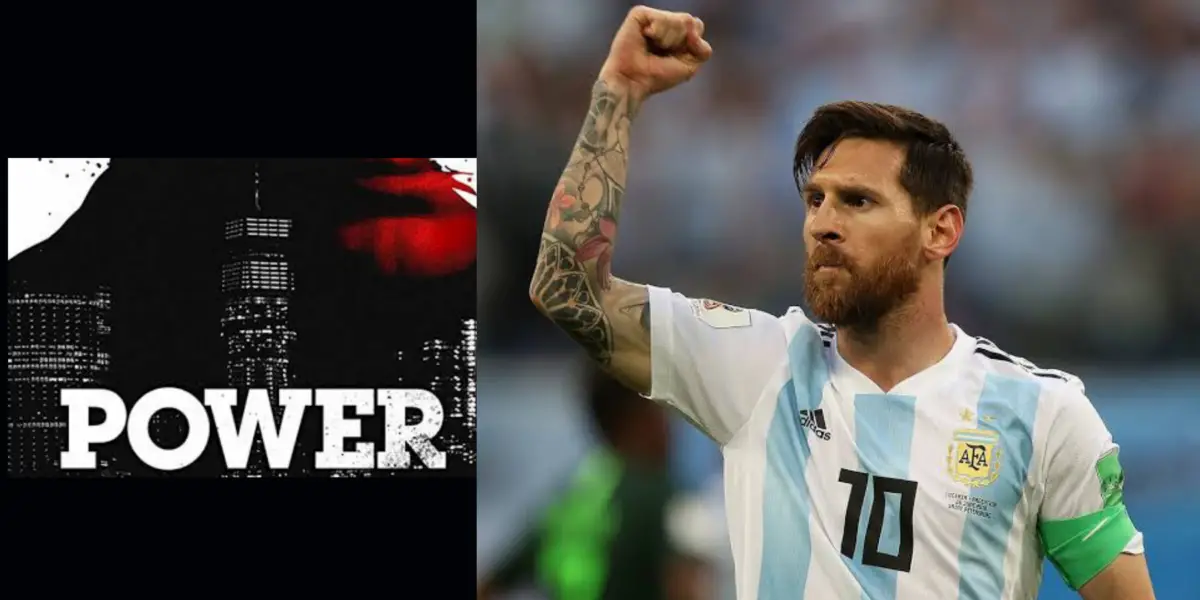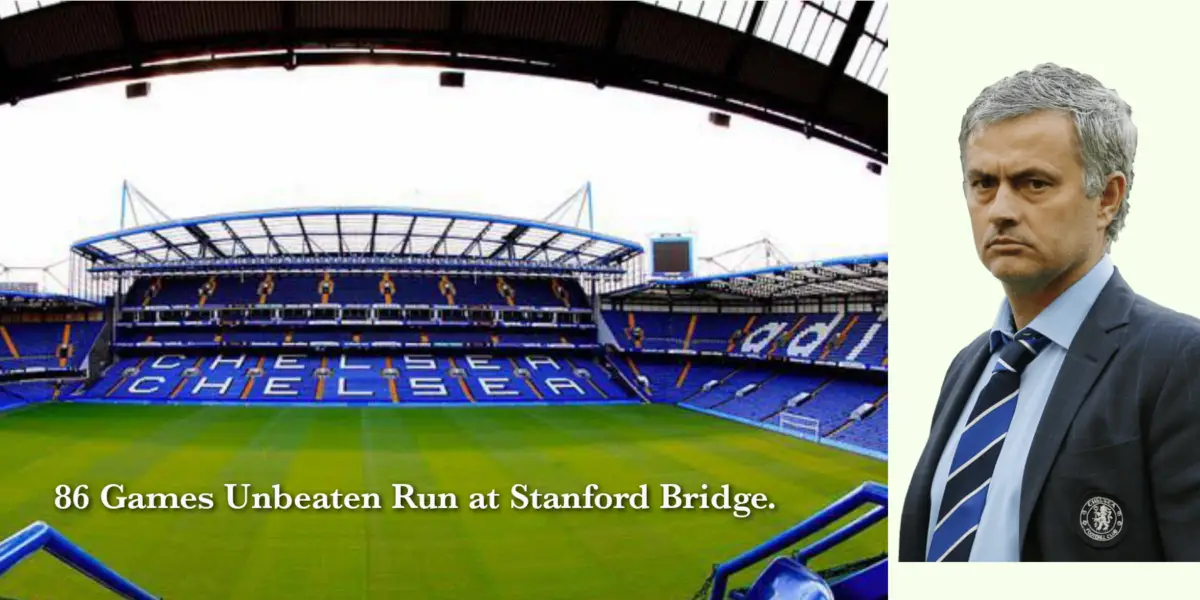When UEFA scrapped the away goals rule in 2021, the headline message was “fairness.” The idea was simple. A goal scored in the 90th minute away from home should not carry more weight than one scored in front of your own fans. Many pundits nodded in agreement. Managers like Thomas Tuchel and Pep Guardiola applauded the change, and fans welcomed the idea that ties would now be decided more “purely” on footballing merit. That’s very fine….
But here’s the irony: while the away goals rule was eliminated in the name of fairness, the system that governs extra time in two-legged ties remains anything but fair. When two teams are level after 180 minutes, the second leg goes to extra time. However, crucially, it’s always played in the stadium of the second-leg host. That means one team gets thirty more minutes with its crowd behind them, on its familiar pitch, in its own city, while the other side is left battling uphill in hostile territory. If fairness were the goal, then this is football’s most glaring blind spot.
Take the unforgettable Champions League semi-final between Real Madrid and Manchester City in 2022. Madrid was trailing late on aggregate, then pulled off one of their trademark comebacks and took the tie into extra time. Once the Bernabéu crowd roared into life, it felt almost inevitable. Karim Benzema’s penalty sealed it. But the real question is, was it fair for City to compete with Madrid at the Bernabeu in those extra minutes when only 90 minutes were played at the Etihad? Was City not at a clear disadvantage in the extra time?
Another example is the 2025 Champions League semi-final second leg at San Siro. Inter and Barcelona were deadlocked on aggregate when Raphinha’s late strike seemed to wrap it up. Only for Francesco Acerbi to equalise at the death and plunge the tie into extra time. As expected, the passionate Inter support in the stadium lifted the home side, and Davide Frattesi scored in extra time, sending Inter through. That extra half-hour of home advantage proved decisive. It raises the same fundamental question as the Real Madrid game: Is it fair for Barcelona to compete in extra time at San Siro when they didn’t have the same environment for the first 90 minutes?
These examples highlight a conversation football rarely has. Fans and pundits argue endlessly about VAR, fixture congestion, and the Super League, but the inherent unfairness of extra time in two-legged ties is a football debate that needs serious attention.
The Challenge With Current Format Justified By Stats
The numbers make the problem obvious. A study of 186 European ties that went to extra time showed that the home side in the second leg advanced two-thirds of the time (66.4% to be precise). Even in penalty shootouts (the supposed lottery), the home team still win most of the time (57%). Furthermore, across roughly 12,000 European knockout matches between 1956 and 2007, the side hosting the second leg went through 53% of the time. In international playoffs, that advantage jumped as high as 61%. These are not mere coincidences. They are signs of structural bias.
And when you think about it, the explanation is simple. Playing extra time at home means an additional thirty minutes of crowd energy, the comfort of a familiar pitch, the absence of travel fatigue, and even, as some refereeing studies suggest, a subtle subconscious bias in officiating. These are the very factors that UEFA said they wanted to strip away when they abolished away goals. Yet in practice, they have doubled down on them, gifting the home team in the second leg an extra half-hour of precisely those advantages.
My Proposal
If we all agree that fairness is the ultimate goal, then there has to be a better way to settle knockout ties than giving one team thirty bonus minutes at home. My solution is simple: if two legs are level after 180 minutes, the tie should shift to a neutral ground. Call it a third leg if you like, but the principle is balance.
There are two ways this could work. One option is a full match at a neutral venue, giving both teams equal footing with a crowd that isn’t overwhelmingly tilted one way or the other. Another, perhaps more practical, version is a shorter playoff: thirty minutes of extra time and, if needed, penalties, all at a neutral ground. Either format removes the inherent tilt of the current system and reframes the contest as a genuine decider rather than an extension of home advantage.
The beauty of this idea is that it doesn’t just solve a fairness issue. It adds something to the spectacle. Imagine the drama of a decisive one-off event on neutral turf, a mini-final before the final. Fans would travel, broadcasters would market it as an occasion, and UEFA or FIFA would find themselves with a new product that both satisfies fairness and creates commercial buzz. In an era where football is constantly looking for ways to grow its audience, this is one change that could make competitions feel fresher without selling out their traditions.
For me, this is about consistency. If UEFA were serious enough about fairness to scrap the away goals rule, then surely it should also be serious enough to fix this blind spot. A neutral-ground playoff doesn’t erase the magic of two-legged ties. It preserves it, while ensuring that when the dust settles, nobody can claim the scales were tilted by geography.
Counterargument On The Proposal Addressed
Wait before you crucify my proposal. I know it raises questions, and I’m ready to address them. The first argument everyone jumps to is fixture congestion. Clubs already complain about playing three times a week, and the calendar feels suffocating with international breaks, domestic cups, and European commitments stacked on top of each other. But let’s be honest: introducing a neutral “third leg” isn’t the apocalypse. If it’s a full match, it adds one extra night, which is still fewer than what we used to have in the replay era of the FA Cup, where teams could end up playing again and again until someone finally won. And if UEFA went with my shorter version (thirty minutes plus penalties on neutral ground) it’s not adding an entirely new fixture, just shifting where and how those decisive moments happen.
The second concern is logistics and travel. Flying squads, fans, and officials to a neutral city sounds complicated, but is it really? UEFA already manages this every season with the Champions League final, choosing and preparing a neutral stadium years in advance. Why couldn’t the same principle apply to these potential “third legs”? Imagine if UEFA designated a set of rotating cities. Let’s say, Lisbon one year, Amsterdam the next, maybe even smaller football capitals eager to host. Everyone would know in advance where the neutral playoff would be staged. It would be a planned part of the calendar rather than a sudden scramble.
Then there’s the argument that it’s “too radical,” that it would change the DNA of two-legged ties. But football has always changed over time. The away goals rule itself was once a radical experiment, and its scrapping just a couple of years ago was another big shift. Before that, replays in European competitions weren’t uncommon. Even in the World Cup, when knockout matches go to extra time, it’s always on neutral ground because the entire tournament is in one country. If neutrality works at the very highest level of the sport, why shouldn’t it be embraced here?
Others might say this proposal dilutes the drama of those famous second-leg nights at Anfield, the Bernabéu, or the San Siro. But I’d argue the opposite. It adds a new layer. You’d still have the magic of two legs, but you’d also get the thrill of a one-off decider where neither side has a built-in advantage. If anything, that showdown would become an event in itself, marketed and remembered like a mini-final, rather than an awkward extension of one team’s home comforts.
So yes, there are counterarguments that I already imagined. But when you actually think them through, none of them outweigh the core principle: fairness. If football can adapt to VAR, five substitutes, Nations League tournaments, and winter World Cups, it can certainly handle a tweak that levels the playing field in its most prestigious competitions.
Final Thought
At the heart of this whole discussion is a simple contradiction. UEFA scrapped away goals to make ties “fairer,” yet the extra time rule still hands the second-leg host a glaring thirty-minute advantage. My proposal of a neutral ground third leg (whether as a full match or a shorter playoff of thirty minutes plus penalties) is not about destroying tradition, but about restoring balance. It solves the one problem everyone overlooks: one team getting to fight with their crowd behind them, while the other fights against it.
But do you think my idea works? Would a neutral third leg truly make things fairer, or would it just complicate the game we already love? Should it be a full ninety-minute replay, or would a shorter, neutral extra-time playoff do the trick? Could rotating neutral venues add to the spectacle, almost like a mini-final sprinkled into the knockout stages? Or do you believe the drama of those famous second legs is too valuable to risk?
Anyway, let me know your thoughts in the comments section. Feel free to share this article X or other platforms and tag the right bodies so this fairness debate can get its deserved attention.





